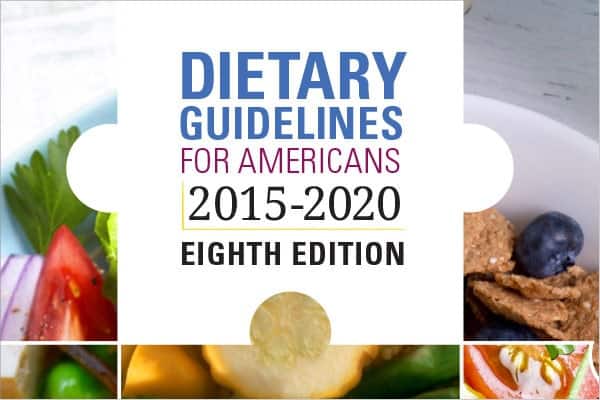New Dietary Guidelines Suggest 20% Reduction in Sugar
The U.S. Department of Agriculture and the U.S. Department of Health and Human Services has announced a drastic cut down on sugar. New dietary guidelines suggest a 20% drop in consumption of sugar-based calories.
The USDA and HHS added yet another diet restriction to the Dietary Guidelines that are renewed every five years. With an aim of reducing obesity and chronic diseases, the new diet rule seeks to limit the amount of sugar Americans have in food and beverages. Studies state that the average American consumes 270 sugar-based calories (or more than 13% of calories) on a daily basis.
Following the guidelines would mean a 60 calories reduction and on a national average, the numbers will go as high as 2.2 tonnes of sugar and corn syrup. Here’s how the implementation of the dietary guidelines will work out.
New Dietary Guidelines for Consumers
 As a step towards tackling the problem of obesity and health related issues, the 2015-2020 dietary guidelines draw attention to not just sugar, but caloric content of added sweeteners in food and beverage as well. The fitness-oriented consumer has a lot to gain regarding a better handle on diet plans. However, consumers will now have to be extra cautious about their purchases. Although limiting sugar intake helps consumer health goals, reading through product labels will become a challenge to the authenticity of alternatives. Meanwhile, health advocates believe that very few Americans will abide by the dietary guidelines.
As a step towards tackling the problem of obesity and health related issues, the 2015-2020 dietary guidelines draw attention to not just sugar, but caloric content of added sweeteners in food and beverage as well. The fitness-oriented consumer has a lot to gain regarding a better handle on diet plans. However, consumers will now have to be extra cautious about their purchases. Although limiting sugar intake helps consumer health goals, reading through product labels will become a challenge to the authenticity of alternatives. Meanwhile, health advocates believe that very few Americans will abide by the dietary guidelines.
Impact on Manufacturers

On top of the new sugar guidelines, the FDA is proposing a new nutrition label for food products.
Introducing a decline in sugar consumption has a direct link with losses incurred by an entire industry dedicated to food and beverage manufacturers, especially soda and candy brands. On a larger scale, sugar and corn companies are in for a major setback. Manufacturers are beginning to react to the dietary guidelines in their own way. Just recently, The Sugar Association that represents several manufacturing companies dismissed the guidelines claiming that it has its basis in “weak science”. The American Beverage Association has funded multiple initiatives to fight tax and labelling laws. Coca-Cola took a different route and began promoting exercise regimes over diet plans for fitness. On the other hand, companies like Cargill have created low-sugar and non-sugar alternatives.
For the guidelines to be successful, the U.S government will have to conduct a lot more research and bring more awareness of sugar content on food labels.
Inspired by reuters.com



